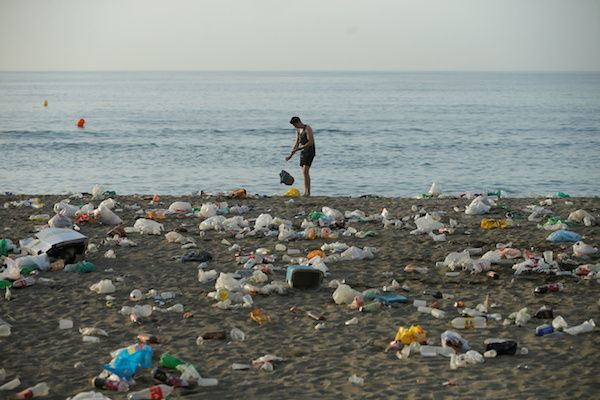Plastic-Eating Bacteria Could Solve World’s Pollution Problem

Pollution caused by plastics has become a very serious environmental crisis in the recent years. The problem lies on the fact that plastic takes centuries to break down, so it can damage its surroundings and lead to serious ramifications to man and other creatures.
Interestingly, there now appears to be a solution for the big environmental problem the world is facing. A student recently discovered bacteria that are capable of eating plastic and breaking it down into harmless by-products, The Independent reports.
Morgan Vague, who studies biology at Reed College in Oregon, is the student who discovered the microbes that can degrade polyethylene terephthalate (PET) — a common plastic compound used in manufacturing clothing, plastic bottles and food packaging.
“When I started learning about the statistics about all the plastic waste we have, essentially that told me we have a really serious problem here and we need some way to address it,” Vague said.
While studying bacterial metabolism and all the other things bacteria can do, Vague decided to carry out an in-depth search for microbes that can break down common plastic. She initially looked into microbes adapted to degrade plastic in the soil and water around Houston-based refineries.
From the samples she collected, Vague tested 300 strains of bacteria to find out which of them produce lipase — a digesting enzyme potentially capable of degrading plastic so the resulting material would be palatable for bacteria. Vague identified 20 lipase-producing bacteria and three of them were said to have high levels of the digesting enzyme.
When Vague studied the three microbes, she found out that one of them was previously undiscovered. When she subjected the strain to a forced diet of PET using strips of water bottles, she discovered that the strain was capable of digesting plastic.
“It looks like it breaks it down into harmless by-products that don’t do any environmental damage, so right now what it’s doing is breaking down the hydrocarbons within the plastic, and then the bacteria is able to use that as food and fuel. So essentially it’s using that to live. It’s essentially turning plastic into food,” Vague explained.
What Vague discovered could essentially pave the way to a solution for the worldwide pollution problem. Each year, approximately 300 million tonnes of plastic are being discarded and only 10 percent of this is being recycled. Tonnes of which are being dumped in landfills and oceans.
Nevertheless, there is still a long way before the plastic-eating bacteria could be used to address the crisis. Microbiologist and supervisor of Vague’s thesis, Jay Mellies, says the next step for the study is to develop a way for the bacteria to eat and break down plastic faster. Another goal is to make the bacteria capable of eating different kinds of plastics, Great Lakes Ledger has learned.
© Copyright IBTimes 2024. All rights reserved.





















